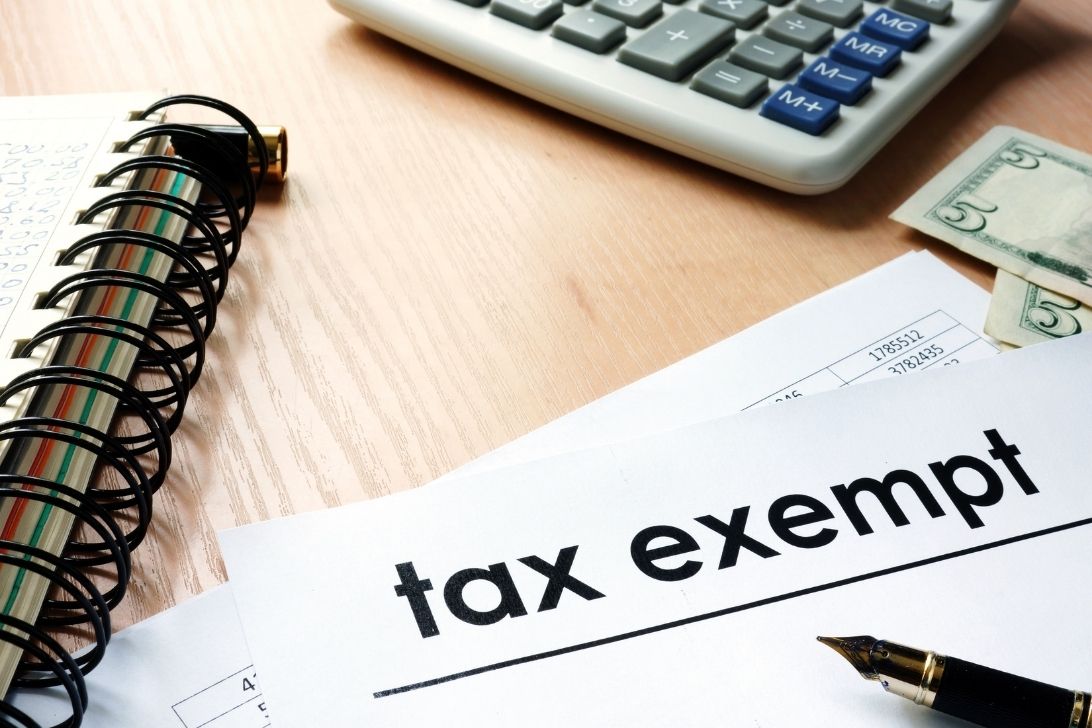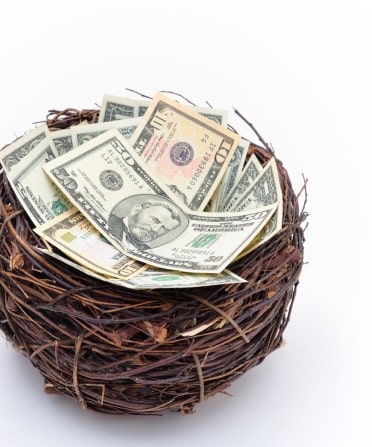Guide To Taxes On Selling A House
Table of Contents
Home sellers commonly want to know do you have to pay taxes on selling a house. The answer to that is, “it depends.” Taxes when you sell a house may need to be paid due to IRS rules, state revenue collection rules, and local taxing authorities. Here, I will give you information to help you understand if you owe taxes on the home you sold.
Do You Pay Taxes When You Sell A House?
When a home seller hires me to sell a house I am also frequently asked about what taxes do you pay when you sell a house. I am careful to answer that and will be here, too, since I am not a tax professional or lawyer. However, I am a real estate agent who has lived on planet Earth. I know how to do research and understand what I read.
There are four common types of taxes that either need to be paid up at closing or settled up with the government by the next tax filing date after the sale. Below is a brief description of each of the types of possible taxes owed when selling a house.
- Property Taxes – Property tax is a tax charged by the local taxing authority to the owner of a property each year.
- Capital Gains Tax – Selling a house can cause capital gains tax to be owed. The sale of an asset for more than its purchase price plus other allowable costs is considered a capital gain which can be taxed. There isn’t income tax on selling a house. Instead, there is a capital gain tax on the profit. However, as you read on there are ways to avoid capital gains tax when selling a house.
- Real Estate Sales Tax – A real estate sales tax on selling a house is a tax on the full or some partial value of the home being sold. Not all states have a real estate sales tax. Who pays sales tax when selling a house is unique to each state which has this tax.
- Real Estate Transfer Tax – This is similar to the real estate sales tax and is a tax upon all or some of the value of the home being bought and sold. Additionally, some people use the terms sales tax and transfer tax interchangeably. Not all states have a real estate transfer tax. Moreover, cities or counties in states with a real estate sales tax are more likely to call this additional layer of taxation a transfer tax.
What Is A Capital Gains Tax?

A capital gains tax is the taxation on a gain from the sale of a capital asset. A gain occurs when a capital asset is sold for a higher price than what it cost when purchased. For example, if I bought a stock for $10 per share and later sold it for $15 per share the capital gain would be $5. The capital gain tax is the tax on the $5 gain. Now, let’s look at how this applies to selling a house.
Because real estate is a capital asset, gains on real estate are capital gains. Therefore, there can be tax on profit from selling a house. However, as you continue reading you will see there are many facts to consider when determining the capital gains tax on selling a house.
Which Home Improvements Count Toward Capital Gains?
All home improvements can count towards your capital gains. However, though that is the question I am frequently asked, that is not the correct way to look at it.
Remember, a capital gain is the profit on the asset, or for this article, the sale of the home. Simply stated, the sale price of the home minus the purchase price. But, what if there was a way to increase the purchase price of the home which reduces your profit thus reducing your tax liability?
Enter, basis. Basis is a term or art in the accounting world. Basis is the total cost of the asset in question. Specific things can be added to the basis of a home which reduces the profit and the tax liability. Here is an example.
Organized Olivia buys 123 Banana St. for $300,000. After living there for a few years she has a $30,000 kitchen and a $10,000 bathroom model. Now, Organized Olivia’s basis is $340,000 due to the improvements. Wisely, Olivia is so organized she saved all the receipts from those two projects. Now, when she sells the home for $500,000 her capital gain is only $160,000. Here is the math.
$500,000 sale price – $300,000 purchase price – $40,000 remodeling costs = $160,000 gain.
Yes, home improvements, maintenance costs, and replacement of items can be used to increase the basis of the home which will reduce the capital gain which lowers the tax liability on the profit of selling the home.
Capital Gains Tax Rates And Exemptions

Below are the capital gains tax rates when selling a house for federal taxation. These will help you understand how much tax when selling a house could be due.
Short-Term Capital Gains Tax Rates
A short-term capital gain occurs if you owned the capital asset you sold for less than one year. In this instance, the gain is taxed as ordinary income. Therefore, the rates are higher.
- Single (unmarried) Filer
- 10% on income less than $10,275
- 12% on income from $10,276 to $41,775
- 22% on income from $41,776 to $89,075
- 24% on income from $89,076 to $170,050
- 32% on income from $170,051 to $215,950
- 35% on income from $215,951 to $539,900
- 37% on income over $539,900
- Married Filing Jointly
- 10% on income less than $20,550
- 12% on income from $20,551 to $83,550
- 22% on income from $83,551 to $178,150
- 24% on income from $178,151 to $340,100
- 32% on income from $340,101 to $431,900
- 35% on income from $431,901 to $647,850
- 37% on income over $647,850
Long-Term Capital Gains Tax Rates For 2022
- Single (unmarried) Filer
- 0% if income is below $40,400
- 15% if income is between $40,400 and $445,850
- 20% if income is above $445,850
- Married Filing Jointly
- 0% if income is below $80,800
- 15% if income is between $80,800 and $501,600
- 20% if income is above $501,600
Real Estate Capital Gain Exemptions

IRS regulations allow home sellers meeting specific criteria to exempt some or all of the gain from selling a home. This is to benefit homeowners due to the understanding that homes cost lots of money to maintain yet few home sellers save all the receipts. Think about it. Did you save the receipt from when you bought a six-pack of lightbulbs and a gallon of paint? I didn’t think so.
There are some simple questions to help better understand whether or not all or some of the gain will be exempted from capital gains.
- Did you own the home for less than one year?
- If no, go to the next question.
- If yes, the gains from the sale are most likely to be taxed as a short-term gain which would fall under ordinary income tax rates. There may be some more exemptions if the property was inherited or a gift. However, those are too complex for a non-tax expert like me.
- Did you own the home for more than one year but less than two years?
- If no, go to the next question.
- If yes, the gain will be treated as a long-term capital gain with lower, long-term capital gain tax rates.
- You owned the home for more than two years, and it was your primary residence for at least two of the last five years?
- If no, the gain will most likely be treated as a long-term capital gain and a tax will be due under the long-term capital gain tax rates.
- If yes, go to the next question.
- Have you sold another primary residence in two of the last five years and used the primary residence capital gains tax exemption during that sale?
- If yes, the current sale will be treated as a long-term capital gain with taxes due at the long-term capital gains tax rate.
- If no, congratulations this sale qualifies for a tax exemption. If you are single, the first $250,000 of capital gains is exempt. If married, the first $500,000 of capital gain from the sale is exempt from taxation.
Other Capital Gains Tax Rules
There are a few more specific rules and regulations that affect both qualifying a gain as a capital gain and the tax liability of a capital gain. The items mentioned here are more advanced. If you believe any of these are applicable to you I suggest you speak with a tax professional.
- The capital gain on the sale of real property, or real estate, that is acquired by being the recipient of a gift or through inheritance can receive special tax treatment.
- A 1031 Exchange is a special tax vehicle used to delay the payment of a tax on the gain on the sale of an asset. Using this vehicle may provide a taxpayer the opportunity to delay payment of the tax liability from a past sale. The 1031 Exchange can be used in real estate.
- The gain from the sale of investment real estate (including gain from the sale of a second home that is not a primary residence) is a gain included in the calculation of Net Investment Income. This is a special tax applicable to higher earning tax payers with substantial investment income.
How To Calculate Your Capital Gains

The key to understanding how selling a house and taxes due from that sale requires correctly calculating your capital gain. Determining your actual capital gain is not too difficult.
First, when you sell the property, you will receive a settlement statement. Here, all of the transaction costs will be deducted from the sale price showing your net proceeds from the sale.
Subtract any documented expenses from the net proceeds which occurred due to the sale but were paid outside of closing; therefore, those costs are not included on the settlement statement. Common expenses here would be improvements made immediately before placing the home on the market or a repair requested by the buyer.
Lastly, you need to know the basis of the home sold. The basis is essentially what you have into it. Expenses that do not get included are the past interest payments on a mortgage or the cost of utilities. However, there are costs which will increase your basis and reduce your capital gain. Some of these include:
- The original purchase price
- Major improvements so long as you have receipts
- Maintenance and repair costs with supporting documentation
How To Avoid Capital Gains Tax When Selling A House

Here I will share with you ways to avoid capital gains tax when selling a house and tips for reducing your capital gains tax liability when selling a house.
1031 Exchange
A 1031 exchange is detailed in Section 1031 of the U.S. Tax Code. A home seller can use a 1031 exchange to delay the payment of taxes from the sale of a capital asset so long as another like-kind capital asset is bought with the proceeds from the sale within the allowed timeframes. A 1031 exchange is an advanced tax maneuver. I strongly suggest consulting with a tax professional, accountant, or attorney with experience assisting clients with a 1031 exchange.
Tax Loss Harvesting
Tax loss harvesting involves taking a loss on an investment to offset the profit on another investment. This is most typically used with short-term capital gains, but can be used with long-term capital gains, too. The purpose is to reduce the capital gain and tax liability by offsetting a win with a loss. As with many tax related issues, there are limitations, so consulting with a tax professional or lawyer is recommended.
Increase The Home’s Basis
Capital gains is all about sale price minus the basis. Increasing the basis will decrease the capital gain. Try hard to find documentation of major repairs or improvements to the property. I understand you probably do not have the receipt for the 10 light bulbs you bought 10 months ago. But, track down the paperwork for that $5,000 septic system repair or $30,000 kitchen redesign. Generally, these repairs and improvements can be added to the home’s basis, reduce your capital gain, and lessen your tax liability.
Wait To Sell
Short-term capital gains are taxed at a higher rate than long-term gains. You can lower your tax liability by simply holding on to the asset for more than one year.
Alternatively, you may be able to exclude a huge amount of profit simply by owning the property for two years or more and using the home as your primary residence for two out of the last five years. Single taxpayers can exclude $250,000 of capital gain from taxation if this criteria is met. Married taxpayers can exclude up to $500,000.
Property Taxes When Selling A house
Most states bill property taxes one year in arrears. Therefore, a property tax refund when selling a house is not common. Instead, paying property taxes on selling a house is typically settled at closing with the buyer. The seller and buyer agree to a final settlement based on the most recent property tax bill and rate for the property. The seller is debited and the buyer is credited that money. After closing, all future property tax payments which become due are the responsibility of the buyer.
Property Tax Rates By State
I have seen all kinds of charts and graphs about property tax rates by state. I refuse to put one on my website because there are far too many caveats to accurately state the property tax rate in each state.
For example, Indiana has two different property tax rate maximums on residential property based on its use. Additionally, many states, including Indiana offer property tax exemptions which reduces the property taxes by lowering the home’s assessed value.
If you are thinking about moving to a certain state, look up their most current property tax rate statute. Also, speaking with a real estate agent can help you be more informed about property taxes in a state and better yet, a local area.
Real Estate Transfer Tax

A real estate transfer tax is a tax upon the exchange of ownership of a home. The tax is typically a percentage of the sale price of a percentage of every $1,000. The tax rate on selling a house is different in each area. Who pays sales tax when selling a house will be decided by state statute or local tradition; therefore, each area will be unique.
Not all states have a real estate transfer tax. For example, Quadwalls.com is based in Indiana. Here, we do not have real estate sales or transfer taxes. Additionally, some states do not have a transfer tax but will allow a local jurisdiction such as a county or city to put a real estate transfer tax into effect.
Some jurisdictions, cities, and states refer to a transfer tax as a sales tax, too. Or, a local area within a state can have a real estate transfer tax and a real estate sale tax.
Conclusion
Selling a home can cause a tax liability. Many of these tax related events such as payment of property taxes, transfer taxes, or a sales tax are addressed at closing. However, a capital gain tax will be settled when you next file income taxes with the IRS and your state tax collection agency.
There are numerous ways to reduce or even eliminate a capital gains tax. First, you must know what was your actual gain on the home by deducting its basis from the net proceeds of the home sale. After that, determine whether your proceeds will be taxed at the higher short-term capital gain tax rate or the lower long-term capital gain rate. Lastly, determine if the capital gain can be reduced or eliminated by using a tax mechanism such as a 1031 exchange, tax loss harvesting, or exclusion due to using the property as a primary residence for the required amount of time.
Also, when in doubt, contact a professional. There are many great professionals who have dedicated their careers to helping taxpayers understand their tax liability.
Are you thinking about selling your home? If so, contact the Quadwalls Real Estate Team. My team and I offer a full-feature home selling service and low real estate commission fees. Click here to learn more about our services.
None of the information in this post should be considered as tax advice or legal advice.
 Updated: March 29, 2023
Updated: March 29, 2023  620
620  16 min
16 min











